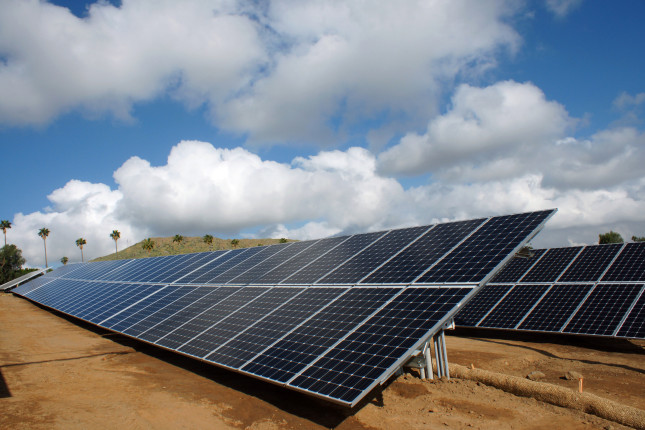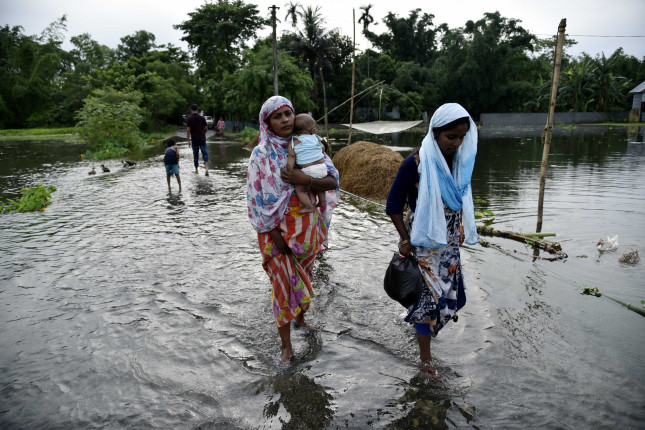-
Answering the Amazon’s Call: Can the Private Sector Mobilize for its Protection?
›
Luiz Inácio Lula da Silva’s victory in Brazil’s presidential election on October 30, 2022—and his appearance at the COP27 summit on November 16—have put protecting the Amazon basin back on the agenda. Speaking at a Wilson Center event on November 4, Iván Duque Marquez, Former President of the Republic of Colombia and a Distinguished Fellow at the Center, highlighted why it was vital to counter the threat to this magnificent biome: “The Amazon is the most biodiverse area in the planet. The Amazon River discharges in one hour the same amount of fresh water that is consumed in a year by 7000 million people; and, at the same time, the Amazon in terms of size is twice the size of the EU and is larger than the United States without Alaska.”
-
One Earth, one security space: from the 1972 Stockholm Conference to Stockholm+50 and beyond
›The 1972 United Nations Conference on the Human Environment marked a watershed in world environmental politics. Gathered in Stockholm, Sweden, the international community collectively recognized that the technologies and economic models that enable modern development were also driving unsustainable environmental degradation, compromising the vital natural systems on which human well-being depends.
-
The Cost of Going Solo in Solar
›
Three decades. That is how much time is left to decarbonize the world’s energy systems to limit global warming to 1.5°C, according to the latest Intergovernmental Panel on Climate Change (IPCC) report. Achieving this feat requires renewable energy systems be deployed at an unprecedented speed and scale. While daunting, however, the good news is that this transformation may not cost as much as many expected just a decade ago, thanks to rapid cost declines in renewable energy technologies.
-
Mobile Clinics and Mental Health Care: The NGO Response to Ukraine’s Health Crises
› The war in Ukraine is not only displacing millions, straining the economy, and ravaging infrastructure. It’s also creating a mounting health crisis. In this week’s New Security Broadcast, ECSP’s Director Lauren Risi hears from Ambassador Daniel Speckhard and Dr. Mariia Dolynska about the health impacts created by the war in Ukraine and what is still needed to strengthen the health system—as well as what one NGO is doing to deliver healthcare in the embattled nation.
The war in Ukraine is not only displacing millions, straining the economy, and ravaging infrastructure. It’s also creating a mounting health crisis. In this week’s New Security Broadcast, ECSP’s Director Lauren Risi hears from Ambassador Daniel Speckhard and Dr. Mariia Dolynska about the health impacts created by the war in Ukraine and what is still needed to strengthen the health system—as well as what one NGO is doing to deliver healthcare in the embattled nation. -
Retiring Coal? The Prospects Are Brighter Than They Appear
›
As COP27 draws to a close, the conference is proving to be a disappointment for environmental advocates focused on eliminating the planet’s number one emitter: coal-fired power.
Yet only a year ago, at the UN climate talks in Glasgow, it felt different. At that time, one could be forgiven for getting excited about the prospects for phasing out coal fired power. Countries had committed to ending its use. Tantalizingly, coalitions of international partners and multilateral development institutions also introduced mechanisms that could help finance closures at scale.
-
Peafowls Halt Dam: A One-off or One Step Forward for China’s Environmental Public Interest Law?
›The slogan “lucid waters and lush mountains are invaluable assets” seemed omnipresent in China in 2015, highlighting a crucial part of Xi Jinping Thought on Ecological Civilization. Yet this powerful formulation proved vague in execution, giving local policymakers new headaches on how to strike the balance between development and conservation in making new laws. China’s judiciary faced an even stickier problem. How do you try such cases in the absence of concrete legal text and sufficient legal precedents?
-
An Inextricable Link: Maternal and Newborn Health and Climate Change
›
“The effects of climate change can begin in the womb,” said Sarah Barnes, the Project Director of the Maternal Health Initiative at the Wilson Center at a recent event on the impact of climate change on maternal and newborn health outcomes, hosted by the Wilson Center and UNFPA. It is a connection that “[makes] it imperative that climate change and maternal and newborn health leaders work together to tackle climate change and improve maternal and newborn health outcomes, globally.”
-
Climate Change, Population, and the Shape of the Future
›
As the world’s attention has turned in November 2022 to the UN COP 27 climate change conference, another important global milestone is also drawing attention. Today, November 15, 2022, the global population is predicted to reach 8 billion. By 2050, it will be 9.7 billion.
Showing posts from category *Blog Columns.











